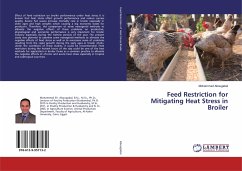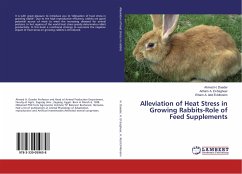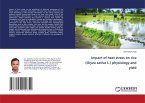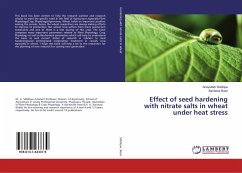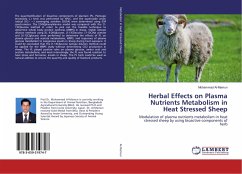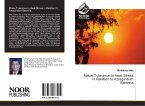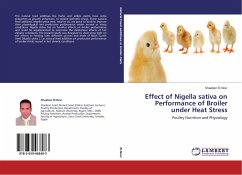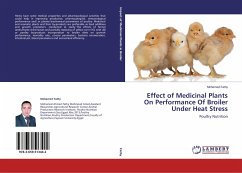Effect of feed restriction on broiler performance under heat stress. It is known that heat stress affect growth performance and reduce carcass quality. Severe hot waves increase mortality rate in broiler especially in older ages and high weights which causing a big economic losses for producers. Therefore, the comparison of some managerial methods to alleviate the negative effects of these problems on productive, physiological and economic performance is very important for broiler industry especially during the hottest periods of the year. The present study was planned to examine some managerial methods to alleviate the negative effects of heat stress as well as to overcome some of problems resulting from the rapid growth during the early ages in broiler chicks. Under the conditions of these studies, it could be recommended: Feed restriction during the hottest hours of the day could be one of the best methods for application in broiler farms as a common practice to alleviate the negative effects of chronic and acute heat stress especially in tropical and subtropical countries.
Bitte wählen Sie Ihr Anliegen aus.
Rechnungen
Retourenschein anfordern
Bestellstatus
Storno

